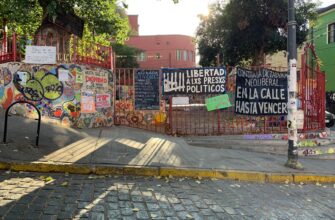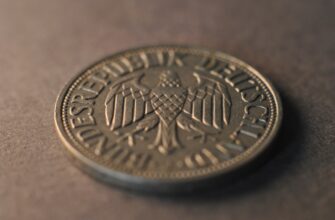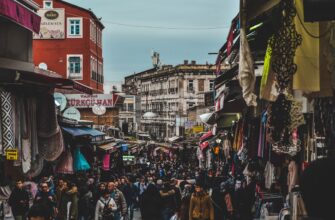- Is Crypto Legal in North Korea? The Stark Reality
- Why North Korea Banned Cryptocurrency for Citizens
- State-Sponsored Crypto Crime: Hacking and Mining Operations
- Extreme Risks: Why You Should Avoid Crypto in North Korea
- Frequently Asked Questions (FAQ)
- Q: Can tourists or expats use cryptocurrency in North Korea?
- Q: Does North Korea mine Bitcoin legally?
- Q: Why does the government hack crypto if it's banned?
- Q: Are there any legal crypto alternatives in North Korea?
- Q: What should I do if approached for crypto dealings with North Korea?
- The Bottom Line
Is Crypto Legal in North Korea? The Stark Reality
North Korea remains one of the world’s most isolated and controlled nations, with strict regulations governing every aspect of life—including cryptocurrency. Officially, cryptocurrency is illegal for ordinary citizens under North Korean law. The regime banned all crypto transactions in 2017, imposing severe penalties for violations. Yet paradoxically, the state itself engages in large-scale crypto hacking and mining operations to fund its illicit activities. This article uncovers the complex, dangerous landscape of crypto in North Korea and why engagement is extraordinarily risky.
Why North Korea Banned Cryptocurrency for Citizens
The ban stems from the regime’s obsession with control. Cryptocurrencies threaten the government’s monopoly on financial systems and information flow. Key reasons include:
- Preventing Capital Flight: Crypto could enable citizens to move wealth abroad, bypassing state restrictions.
- Blocking Foreign Influence: Decentralized networks might expose citizens to outside media and ideas.
- Maintaining Economic Control: The state fears crypto could destabilize its fragile economy and currency.
- Avoiding Sanction Loopholes: Personal crypto use might inadvertently trigger international penalties.
Violators face imprisonment, forced labor, or execution under the "Law on Curbing Decadent Culture"—a broad statute targeting "anti-socialist" behavior.
State-Sponsored Crypto Crime: Hacking and Mining Operations
While citizens are barred from crypto, North Korea’s government runs sophisticated cybercrime programs:
- The Lazarus Group: This state-backed hacking unit has stolen over $2 billion in crypto since 2018, targeting exchanges like Coincheck and KuCoin.
- Illegal Mining Farms: The regime uses stolen electricity to power mining rigs, generating Bitcoin and Monero.
- Sanctions Evasion: Crypto provides untraceable funding for weapons programs amid global financial restrictions.
- Ransomware Attacks: Groups like WannaCry extort crypto from foreign entities to fill state coffers.
UN reports confirm these operations fund up to 50% of North Korea's missile development—making crypto a national security tool.
Extreme Risks: Why You Should Avoid Crypto in North Korea
Engaging with cryptocurrency in North Korea carries catastrophic consequences:
- For Citizens: Possession or trading can lead to public execution or life in political prison camps.
- For Foreigners: Violates UN sanctions—resulting in asset freezes, travel bans, or prosecution in your home country.
- For Businesses: Crypto transactions with North Korean entities may trigger OFAC penalties in the US or EU sanctions.
- Technological Barriers: Internet access is heavily restricted, making crypto use nearly impossible without state detection.
Even VPN usage to access crypto exchanges is punishable by death under North Korea's 2020 "Anti-Reactionary Thought Law."
Frequently Asked Questions (FAQ)
Q: Can tourists or expats use cryptocurrency in North Korea?
A: Absolutely not. Foreigners are monitored 24/7, and crypto use violates international sanctions. Penalties include expulsion, imprisonment, or being held as political leverage.
Q: Does North Korea mine Bitcoin legally?
A: No—mining is state-operated but illegal under UN resolutions. The regime steals electricity from China and South Korea to power covert mining facilities.
Q: Why does the government hack crypto if it's banned?
A: Crypto theft provides untraceable revenue to bypass sanctions. Stolen funds support nuclear programs and elite lifestyles while citizens face famine.
Q: Are there any legal crypto alternatives in North Korea?
A: None. The state promotes a closed-loop voucher system for internal transactions. Any digital currency outside state control is considered treason.
Q: What should I do if approached for crypto dealings with North Korea?
A: Report it immediately to authorities like the US Treasury or UN Sanctions Committee. Engagement could make you complicit in terrorism financing.
The Bottom Line
Cryptocurrency is unequivocally illegal for individuals in North Korea, with the state enforcing brutal penalties to maintain total control. Yet the regime weaponizes crypto through hacking and mining to bankroll its survival—making it one of history's most hypocritical financial policies. For outsiders, any crypto interaction with North Korea violates international law and supports a criminal enterprise. Until the regime collapses, crypto in the DPRK will remain a tool of oppression, not liberation.








